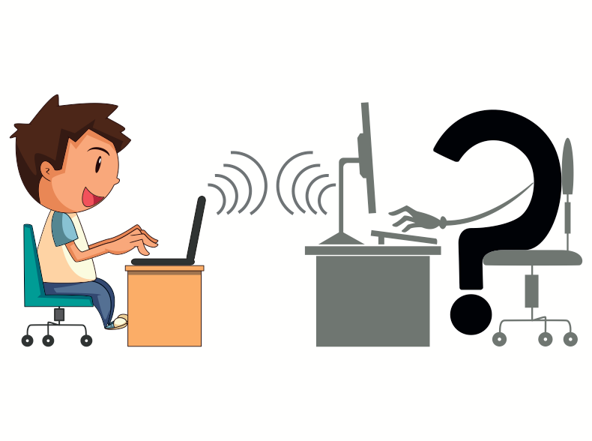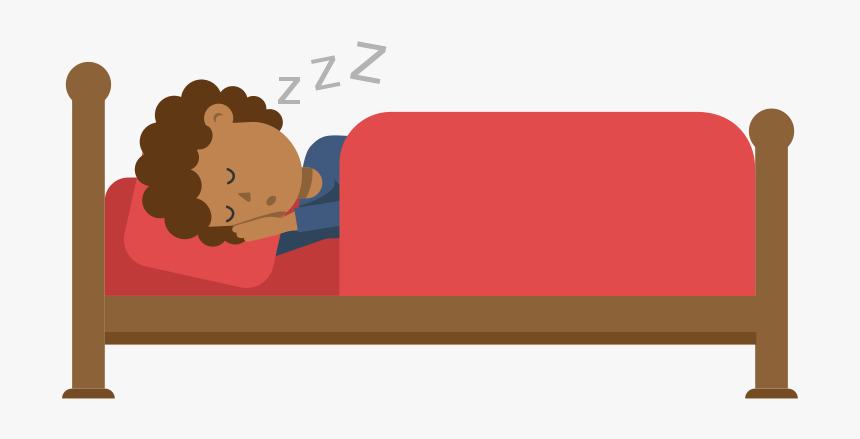Mindfulness in COVID-19 pandemic: A step towards treating depression

By : Devkota, Swopnil and Poudel, Arica
Abstract
Background: Corona Virus Disease (Covid-19) pandemic has been fabricating distressing situation across the globe. Globally, COVID-19 is pushing entire population of world into a mental health crisis. Clinical depression, anxiety and other mental conditions are becoming amplified during current pandemic. Mindfulness-based interventions and mindfulness practices have been associated with a wealth of psychological benefits, relieving anxiety, stress and depression and improvement of well-being.
Aim: The aim of this study is to highlights the existing research works and findings in relation to role of mindfulness and the use of mindfulness in the treatment of depression.
Conclusion: In Nepal, COVID- 19 has caused a serious impact on mental health of Nepalese population with the increasing number of depression, anxiety and stress. Though, effectiveness of mindfulness practice and its research has not been yet done but global existing research proves that mindfulness practice can be taken as psychological intervention to relieve the worries, anxiety and depression prevailing because of COVID-19 pandemic. Hence, mindfulness approaches can be utilize to deal with depression during Corona Virus Disease (COVID-19).
Objective
This article was written focusing on following objectives:
- To understand the current mental health status of people during COVID-19 in Nepal.
- To know about depression, its causes, symptoms and treatment.
- To learn about mindfulness and its importance.
- To understand how mindfulness can help in treatment of depression.
Method
The article has been based on resources. It has followed closely with various researches, American Psychiatry Association (APA)’s guiding principles and articles of various other writers.
Keywords: COVID-19, mindfulness, depression, effectiveness
- Situation of people’s Mental Health in Nepal due to COVID-19
COVID-19 is no more new terminology for us at this stage. World wide spread pandemic has killed millions of people and its heart breaking to see the wipe out of the population so drastically. It is also not new that the pandemic has brought the situation of lock down worldwide including Nepal and alarming situation of mental health conditions are being noted.
Lock down and social distancing is creating many health problems including depression. Low mood, irritability, tension, anxiety, insomnia, emotional fatigue, frustration, depression and the symptoms of posttraumatic stress are the most common mental illnesses seen during lock down. Main factors for lockdown stress flourish include infection risk, terror of being ill or losing loved ones, and the possibility of financial distress.
Upon conducting a cross sectional survey was conducted between May to June, 2020 with a sample of 645 participants aged 18 and above in 26 hospitals across Nepal, following results were obtained: The prevalence of anxiety, depression and stress were 14%, 7% and 5% respectively. Participants from Bagmati province reported higher level of anxiety while stress and depressive symptoms were observed higher among the participants in Province. Women were more at risk of anxiety and depression than men. (Devkota H.R et al., 2020). In addition, Nepal Police informed about having registered about 487 total suicide cases in the first month of lockdown. (Republica, 2020). Before that it used to be around 400 cases on average every month. Why did this happen? Lockdown intensified anxiety and stress levels heightening the chances of depression. It is also found that no age group over 25 has a depression rate higher than, but the younger groups all do, and the rate among college-age adults (20-21) has increased the most. (Brueck, 2019)
- What is depression, its symptoms and risk factors?
Depression is a common and serious medical illness that negatively affects how you feel, the way you think and how you act. Up to 80 percent of individuals suffering a major depressive disorder could relapse. Depression is an illness not a choice which should be a reminder for every one of us. We are all raised in a society with the stigma regarding depression without properly educating ourselves about it which causes more suffering. Depression can be broken into categories depending on the severity of symptoms. Some people experience mild and temporary episodes, while others experience severe and ongoing depressive episodes. There are two main types: major depressive disorder and persistent depressive disorder. Majorly depressive symptoms consists of feeling depressed most of the day, loss of interest in most regular activities, significant weight loss or gain, sleeping a lot or not being able to sleep, slowed thinking or movement, fatigue or low energy most days, feelings of worthlessness or guilt, loss of concentration or indecisiveness, recurring thoughts of death or suicide etc. and more. Each person may describe depression differently meaning individuals experience depression in different ways. Men, women and children describe it differently. Medications, psychotherapy, light therapy, exercises, meditation and other advancements have been as well used for the treatment of depression but then evidence provides positive results regarding the relationship between mindfulness and depression reduction.
Medications, if they succeed at all, could be losing their efficacy over time. Since depression and anxiety have significant effects on well-being and are two among the most prominent psychiatric conditions in patients being treated with sub-clinical symptoms often, the influence on the general population’s understanding on the mechanisms by which mindfulness can have a positive impact on these symptoms is of interest. This is a technique that aims to help avoid recurrence by changing thought patterns without side effects also known as mindfulness-based cognitive therapy or MBCT. Some researchers suggested ruminations could mediate the negative relationship between mindfulness and depression. People at risk of depression have a lot of negative thoughts, emotions and opinions about themselves and that can quickly slip into a depressive relapse, MBCT helps them understand this, deal with it in a different way and respond with equanimity and compassion to it, says Willem Kuyken, a professor at Oxford University in the UK. (Lu Stacy, 2015).
- Mindfulness and its use in treating depression
Mindfulness, the mechanism by which one attends to stimuli, thoughts, feelings and perceptions of the present moment in a non – judgmental way has been reported to have beneficial effects on health and well-being in both non-clinical and clinical samples. Precisely, mindfulness relates to training the brain and is an evidence based practice. It has its roots in Buddhist meditation, a secular practice of mindfulness has entered the American mainstream in recent years, in part through the work of Jon Kabat-Zinn and his Mindfulness-Based Stress Reduction (MBSR) program, which he launched at the University of Massachusetts Medical School in 1979 in alleviating pain in chronically ill patient.
Mindfulness is not religion anyone with any belief system can practice mindfulness. Everyone form every walk of lives form young to old one can enjoy the benefits of mindfulness It can be practice both formally and informal. Informally in the sense, human being can be mindful while living their daily activities. Formal practice means having a set time and space for mindfulness meditation including different psychotherapeutic approaches include mindfulness techniques including anxiety and depression like MBSR and MBCT. Some of the common mindfulness technique are mindful breathing, body scan, mindful eating, mindful meditation and mindful movement.
Mindfulness meditation or just simply mindful approach towards life can produce discernable changes in brain activity and structure hence, inducing calm and compassion, increasing sense of self efficacy. The most important fact that has brought attention is that it is brain that is most affected during depression damaging three main parts: hippocampus (stores memories), amygdala (process emotional reaction) and prefrontal cortex (regulating emotions, making decisions and forming memories) of the brain. It seems that the disruption of brain chemicals especially serotonin is in low production while in depression. Interestingly, the mindfulness practice (Now and Zen: How mindfulness can change your brain and improve your health, 2016). When human are not deliberately paying attention to something, our brain clicks off into Default Mode. This is a type of attention characterized by mental chatter, mind wandering, dwelling on the past and worrying about the future, judgment and criticism. Default mode has been found to activate specific areas of the brain, mostly in the temporal and parietal lobes, along with the hippocampus and certain prefrontal areas. The amygdala (“fear center”) also becomes over activated. This activation pattern tends to result in experiencing the world through thoughts and ideas, rather than directly through the senses, and is increasingly being linked to mental health problems such as stress, anxiety, depression, ADHD and even autism and schizophrenia (R.L, J.R, & D.L, 2008).
According to a cover story on “Mindfulness holds promise on treating depression”, MBCT was founded by three psychologists over a decade ago Zindel Segal, PhD, J. Mark G. Williams, DPhil, and John Teasdale, PhD. MBCT especially seeks to teach people to disengage from the deeply ingrained dysfunctional thoughts common to depression. When the mind wanders, the meditator ideally takes note of where it goes during a mindfulness practice session, and how it returns calmly to the moment at hand, perhaps by concentrating on breath, bodily sensations, or a simple yoga step. In sum, research indicates that verbal avoidance, anxiety and rumination are negatively correlated with mindfulness, while reappraisal shows the opposite relationship. Importantly, evidence suggests that the first three lead to depression and anxiety or their associated symptoms, while the fourth reduces them. According to Susan Woods, a psychotherapist in Vermount said that if somebody is in major depression episodes, mindfulness is useless because client usually has no energy and ability to concentrate for any length of time.
3.1 Why Mindfulness?
In the pandemic situation of COVID-19, increment of mental health issues have the risk of increment, mostly to those having pre-existing mental health conditions. According to republica, it is predicted that the social and economic divisions caused by the pandemic would lead to unemployment, washed-out social safety nets and poverty and many other social problems. Teenagers, job holders, employees (especially the daily wage workers) are at greatest risk for mental health problems. This is where mindfulness will be playing a vital role in bringing out the positivity in this hazardous situation. Rumination, worry, cognitive reappraisal, negative emotional experiences seem common during this period of time. However, several studies have identified a negative relationship between rumination and mindfulness in group samples, but also a reduction in depressive symptoms in individuals with major depressive disorder who underwent careful mindful based cognitive therapy.
Mindfulness-based treatments are gradually being applied globally for depression and anxiety disorders, and they have shown signs of efficacy. Recent studies investigated the mechanisms of practice, is focusing as potential mediators on mindfulness, mind wandering, self-compassion, and behavioral avoidance and behavioral stimulation (BIS / BAS) (Takahashi, Sugiyama, & Kikai, 2019). According to Dr. Stahl, who is now at Dartmouth Medical Center says that we don’t need to enroll in a formal program, or even spend a lot of time practicing only 10 to 15 minutes mindfulness practice a day will work but consistency is the key.
Human being are social creatures, also human brain is neuro-plastic, relentlessly learning, evolving and reprogramming itself. It constantly molds and shapes accordingly with the experience. It is normal to feel hopelessness and despair, to worry about being infected, worrying about future, grieving the loss of loved ones, feeling cut off due to social distancing. But when it’s overwhelmed, it slowly starts to affect us and our daily living, developing anxiety, and stress leading to depression. During this period practicing mindfulness helps people to live the reality, enjoy the moment without being judgmental, accept it and move on. Mindfulness practice with consistency helps to create a neural pathway leading to happiness, gives greater sense of self-efficacy. People who practiced mindfulness may realize that their mind who generates ruminative and depressive thoughts is actually do not have any existence. These thoughts are just thoughts not facts in their life. Mindfulness train brain to be more aware of thoughts and to stand back and simply observe thoughts passing through their mind, instead of trying controlling emotions, blaming themselves for feeling down or worrying about relapse (Lu Stacy, 2015).
APA suggest that strongest benefit of mindfulness include reduced rumination, stress reduction, less emotional reactivity, improving mood, reducing stress and its consequences, improving brain function, improving coping pattern of pain, enhancing self- awareness and sense of efficacy. Another study where participants were randomly assigned to an eight-week mindfulness-based stress reduction group were compared with controls on self-reported measures of depression, anxiety and psychopathology, and on neural reactivity as measured by fMRI after watching sad films (Farb et al., 2010). In a study of people who had anywhere from one month to 29 years of mindfulness meditation practice, researchers found that mindfulness meditation practice helped people disengage from emotionally upsetting pictures and enabled them to focus better on a cognitive task as compared with people who saw the pictures but did not meditate (Ortner et al., 2007).
Research conducted by Segal and colleagues studied 84 people in remission and found MBCT could help prevent recurring depressive episodes as well as medication and better than placebo (JAMA Psychiatry, 2010). A review Madhav Goyal of The Johns Hopkins University wrote for JAMA Internal Medicine (2014) looked at different types of mindfulness meditation, finding that it had the same moderate effect on treating depression as medication, and had moderate effects on anxiety and pain as well.
Research conclude that mindfulness brings about various positive psychological effects, including increased subjective well-being, reduced psychological symptoms and emotional reactivity, and improved behavioral regulation (Keng, Smoski, & Robins, 2011) . Strongest benefit of mindfulness include improving mood, reducing stress and its consequences, improving brain function, improving coping pattern of pain, enhancing self- awareness and sense of efficacy (Davis & Hayes, 2011) .
- Conclusion
It is evident that mindfulness is thus a mindful practice that can be done anytime anywhere by anyone. It helps us to become aware of our thoughts rather than becoming overwhelmed by it. The thoughts, the persistent feeling of sadness and loneliness that gather us when we are solemnly locked down within us ceases us to latch onto our hobbies, fun activities or anything that makes us positive relatively dragging us towards depression. Mindfulness practice helps us gain more insights of our emotions, boost our concentration, regulates our mood, makes us self-aware and eventually encourages us to be happy and thus helps us reduce the risk of depression. Based on examination of empirical literature review across multiple methodology, this article concludes that mindfulness and its cultivation facilitates psychological and physiological functioning and wellbeing hence, mindfulness is worth practicing in our daily life mindfully living the pandemic and dealing the depression.
References
Birthwell, K., Kelly, W., & Harn, M. V. (2018). An Exploration of Formal and Informal Mindfulness Practice and Associations with Wellbeing. Researchgate.
Brueck, H. (2019, March 21). Depression among Gen Z is skyrocketing — a troubling mental-health trend that could affect the rest of their lives.
Devkota, H. R., Sijali, T. R., Bogati, R., Ahmad, M., Shakhya, K. L., & Adhikary, P. (2020). The Impact of COVID-19 on Mental Health outcomes among hospital fever clinic attendants across Nepal: A community-based cross-sectional study. medRxlv.
Diagnostic and Statistical Manual of Mental Disorders (DSM-5). (n.d.). 2013.
Feldman, G., Greeson, J., & Senville, J. (2010, December). Differential effects of mindful breathing, progressive muscle relaxation, and loving-kindness meditation on decentering and negative reactions to repetitive thoughts. . Behav Res Ther, 1002-11.
Kabat-Zinn, J., Massion, A. O., Kristeller, J., Peterson, L. G., Fletcher, K. E., Pbert, L., . . . Santorelli, S. F. (1992, July). Effectiveness of a meditation-based stress reduction program in the treatment of anxiety disorders. Pub med, 936-43.
Keng, S.-L., Smoski, M. J., & Robins, C. J. (2011). Effect of Mindfulness on Psychological Health: A Review of empirical Studies. HHS Public Access.
Lu Stacy. (2015, Marcg). Mindfulness holds promise for treating depression. American Psychological Association, 46, 50.
MB, M., KA, A., & NL, K. (2018, June 18). MBCT is an effective treatment for depression. NCBI, 14, 1599–1605.
(2016). Now and Zen: How mindfulness can change your brain and improve your health. The Joseph B. Martin Conference Center, Harvard Medical School.
R.L, B., J.R, A.-H., & D.L, S. (2008). The brain’s default network: Anatomy, function, and relevance to disease. In A. Kingstone & M. B. Miller (Eds.), Annals of the New York Academy of Sciences: Vol. 1124. The year in cognitive n. (K. &. Miller, Ed.) APA PsycNet, 1124.
Republica, M. (2020, May 21). Suicide cases on the rise, mental health experts warn of a ‘grim’ situation.
Revision, D. a. (2000). Washington, D.C: American Psychiatric Association.
Takahashi, T., Sugiyama, F., & Kikai, T. (2019, Feb 18). An 8-week mindfulness group therapy program may be effective for people suffering from depression and anxiety in Japan. Biopsychosoc Med, 13.
Contributors:
Swopnil Devkota is a student of Master’s in Clinical Psychology in Padma Kanya Multiple Campus and also a Psychosocial Counselor at Youth Legend Nepal. She has worked in various I/NGOs as trainee, volunteer, intern and employee.
Email: devkotaswopu@gmail.com
Arica Poudel is a Registered BSC. Nurse and student of Master’s in Clinical Psychology and also trainee of Psychosocial Counselling in TSOP Nepal, She has worked in various NGOs as Program Officer and Nutritional Officer.
Email: arica.poudel1994@gmail.com



















Facebook Comments